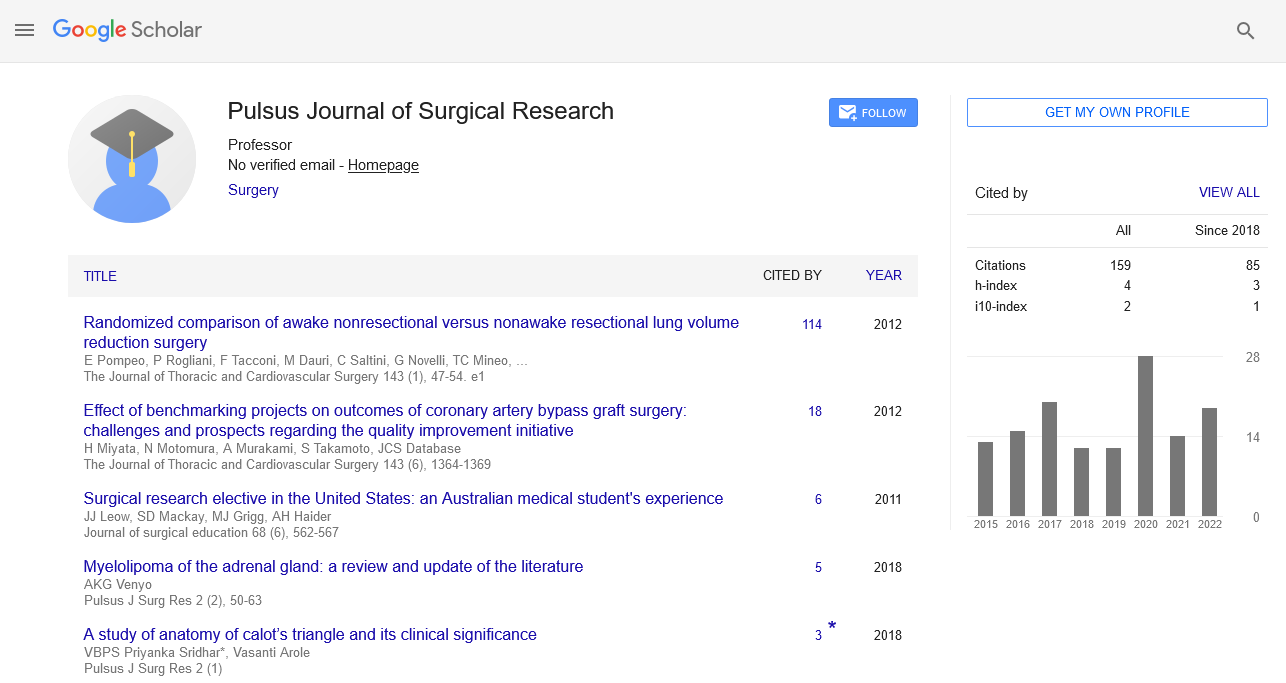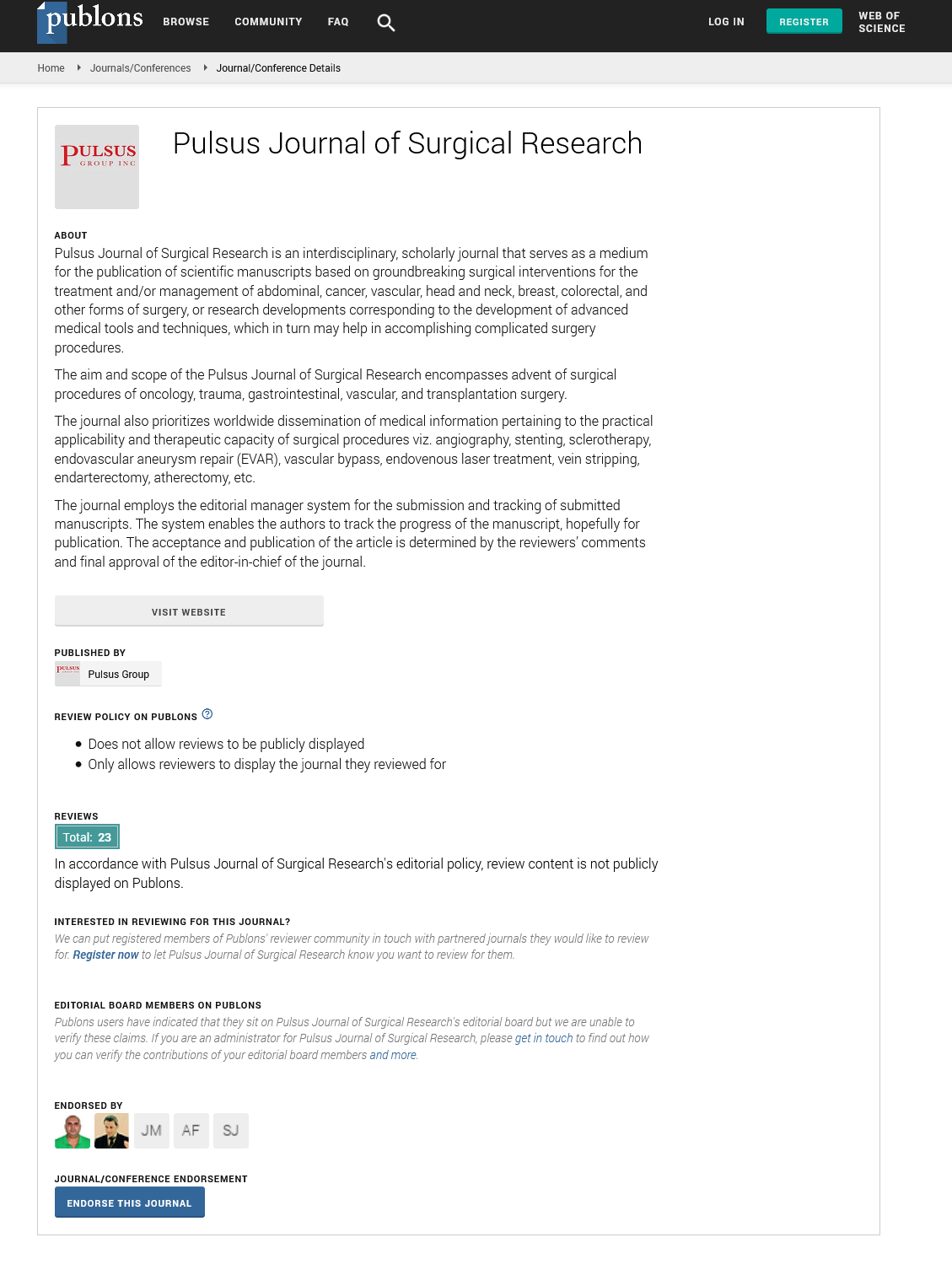
Sign up for email alert when new content gets added: Sign up
Acute presentations of crystal arthropathy: A retrospective cohort review
12th International Conference on Osteoporosis, Arthritis and Musculoskeletal Disorders
March 13-14, 2019, London, UK
Ayman Sorial
Harrogate and District NHS Foundation Trust, UK
ScientificTracks Abstracts: Pulsus J Surg Res
Abstract :
Background: Synovial fluid analysis is an indispensable investigation to attain a diagnosis in a patient with acute hot swollen joint. A delay in appropriate early management results in serious undesired consequences. The management of acute hot swollen joint would normally be conducted along BSR/ BOA guidelines. The management of pediatric hot swollen joints is normally conducted with reference to Kocker’s criteria for septic arthritis in children.
Methods: We have evaluated the pathway for acute hot swollen joints as an audit of practice against published guidelines; the time frame was set at an interval of three years allowing the capture of a larger series. This included any patient with a synovial fluid sample with a request for gram stain direct microscopy and culture. The study involved 562 synovial samples, for every sample data were collected to include; age at presentation, gender, time lapse between sample collection and reporting of results, other relevant results both hematological and biochemical. The synovial fluid samples were also examined for white cell content and prevalence of Polymorphs.
Results: The median age at presentation was 68 years, the audit identified areas for improvement e.g. Failure to report joint affected (1.78%), Failure to report side (6.35%). Adherence to all 6 points outlined in guidelines was 75.5%. In our review it was evident that crystal arthropathies accounted for 25% of cases presenting with acute onset arthropathy in adults, in this study calcium pyrophosphate arthropathy was more prevalent than gouty arthritis. Acute presentations of crystal arthropathy have been associated with a significant inflammatory reaction as evidenced by a high C-Reactive Protein (CRP) even if compared to septic arthritis. The classic radiological findings associated with calcium pyrophosphate crystal arthropathy3 were not evident in all patients presenting with acute mono–arthropathy confirmed to be related to calcium pyrophosphate deposition. There were two cases of joint sepsis associated with crystal arthropathy.
Discussion: The exact prevalence of acute presentations of crystal arthropathy is difficult to assess, in this study crystal arthropathy accounted for 25% of presentations, crystal arthropathy was found to incite a significant inflammatory reaction and therefore differentiation based on clinical, radiological and biochemical parameters only can be misleading.
Biography :
Ayman Sorial. MBBCh. Hons. MSc. MD MRCS. FRCS. Consultant trauma and orthopaedic surgeon (Egypt). Staff grade trauma and orthopaedic surgeon (UK). First RCS fellow certificate awarded for senior hip fellowship harrogate and district NHS FT. Clinical hip fellowship leeds teaching hospitals. Lower limb arthroplasty and arthroscopy specialist.
E-mail: Aymansorial1@gmail.com





